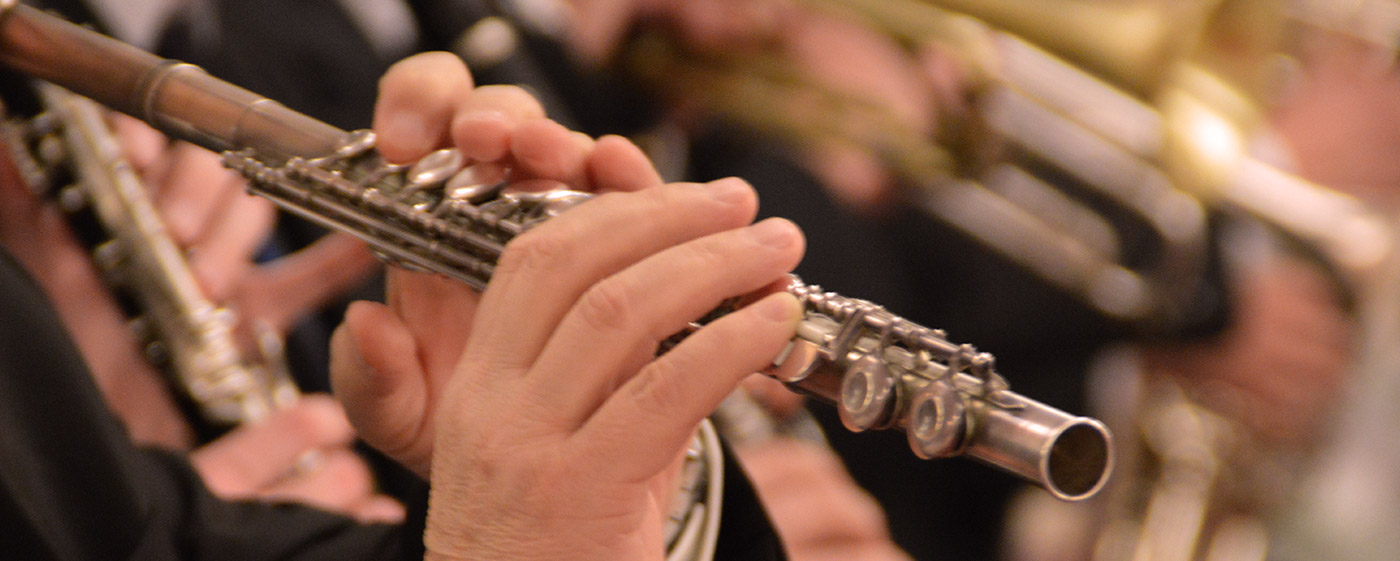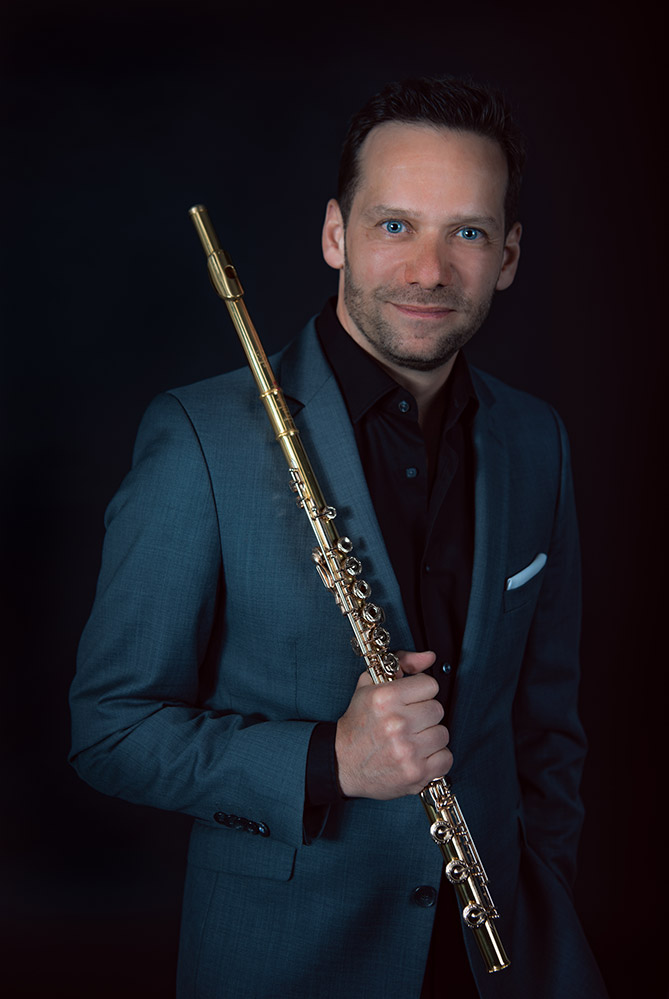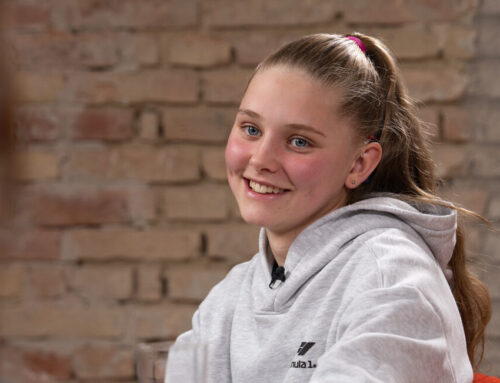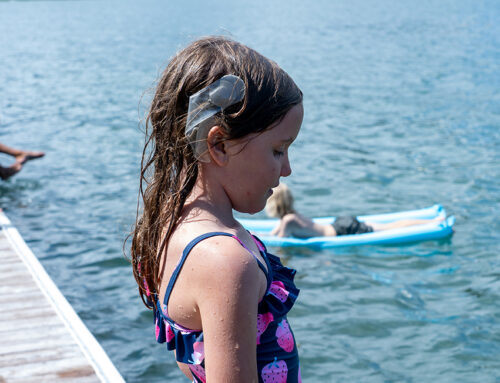A life of an artist Walter Auer
Grew up in Carinthia, moved to study flute at the Mozarteum in Salzburg and then conquered the flute world: that is a brief biography of Walter Auer, solo flautist with the Vienna Philharmonic Orchestra. The virtuoso musician spoke to gehört.gelesen about perfection, reasonableness and abstention.

RTH (Read to Hear): Your professional aim of becoming a flautist in a good orchestra was already set in your youth. Were there alternatives to this career aspiration?
Walter Auer: I made my decision at about 15 or 16 years old, when I had already had some success with the flute. I wasn’t interested in any alternatives, and I have never thought “I’d like to try something else now”. If you know as a boy what you really want to do, there is no question about much else. I had lots of audtions and trials, performances and concerts away during my training and I missed a lot of school. That needed the support and understanding of my teachers. I was an average pupil, but the teachers knew my career aim and were very understanding.
RTH: What characteristics does it take to become as successful as you?
WA: It needs a certain musical talent, of course, and the determination and willingness to invest many hours every day in achieving your aim. That is true whether it is music, sport or another aim.
As soloist, I have to show strong leadership in the form of string musical guidance that the rest of the orchestra can follow. As an orchestral musician, you also need strong nerves to help you constantly give precise and top-level performances.
RTH: How do you cope with this pressure? What about with mistakes?
WA: In the Vienna Philharmonic and the Orchestra of the Vienna State Opera, we are on stage almost daily and so we are under a lot of pressure to perform. A great deal of stability helps to deal with it. And coolness – in the positive sense. If I make a mistake, all my colleagues hear it, if it’s a big mistake, maybe even the audience, but it passes. It is not very nice, but I have to keep things in proportion. It is an opera and not an operation.
In my probationary year at the Vienna State Opera, I took mistakes very hard. With experience, I got things more in proportion and applied a certain degree of coolness.

©Walter Auer
RTH: How important is Perfection to you?
WA: In the context of music, perfection is very hard to define. Does perfection mean that a musician doesn’t make any mistakes, and plays everything exactly as it is in the score, technically fault-free? This making no errors can be unbelievably boring. Bland perfection is just cold. Perfection without inspiration, without imagination, is no good. Perfection in technique, in the fingering, in the sound, is the basic prerequisite for a musician to even be able to play in a famous orchestra. Transposed to sport, that would mean that a world-class runner would have to run 100 metres in under 10 seconds. Not just once in three months, but always. The higher the level the better the reputation of the orchestra, the more consistent the 100-metre performance has to be.
The Vienna Philharmonic audience all over the world expects a high degree of quality but also a uniqueness, incomparability, unrepeatability. And the most beautiful, most perfect moments often arise just when they are not expected.
What I am doing today exists only one single time in this form. Tomorrow it will be similar but never exactly the same again. That is the fascinating thing about my job!
RTH: You are an enthusiastic sportsman. What restrictions are placed on you as a professional musician in respect of sport?
WA: My employer, the Vienna State Opera, has not put any clauses in our contracts. I am a sensible person in all that I do. As a leisure sportsman, I don’t need to snowboard down the mountain with all the skiers and all the risks that entails, but just go nice and easy and stay within my limits. I also have family responsibilities as the father of three children.
I have a calm temperament and always steered well clear of any scuffles because a punch to my lips could have meant the end of my career.
My advice: use your brain and try to control what you can control.
RTH: So you don’t have to sacrifice many hobbies because of your job?
WA: Not in that sense. My sacrifices look a little different. Interestingly, I have to sacrifice exactly what has been enforced during the covid shutdown. I was at home for the first time in my Philharmonic career and regularly able to have lunch and dinner with my family. Normally, I am working in the evening, there is hardly a day when I’m not performing. In Vienna, or some other concert hall in the world, as we are on tour for several months each year. That’s a certain kind of sacrifice to me, of family life as others know it, and of free weekends. Our normality looks a bit different.
I would like to stress though that I don’t feel that I have to sacrifice much in my life, quite the reverse. I have seen an amazing amount of different things through my job, I can travel a lot and meet fascinating people. That is a precious gift I would never have dreamed of.
RTH: How do you learn a new piece? Do you rely more on the score or on your ear?
WA: I prepare well at home for orchestral works. First, I look carefully at the score and then I can imagine the piece to a certain degree. Hearing itself starts with the flute part and the impression I get of that. I can also see the technical demands and difficulties. Only then do I listen to lots of different recordings. In that way, I can avoid playing something that I had subconsciously perceived, although it isn’t in the score at all. And I hear exactly how I don’t want to play something.
RTH: What does hearing mean to you?
WA: My hearing is the most important thing for me in my job, even more important than my lips or fingers. I have to be able to react precisely to a tenth of a second, hearing everything properly. I look after my hearing and even play some places with ear protection. As indeed are more and more orchestral musicians. Even the thought of not being able to do my job any more due to hearing loss chills me to the heart.
RTH: Are there pieces that you don’t like?
WA: No, there aren’t. It would not occur to me to say, “I don’t like this piece”. I look forward to it, even if it is the fiftieth “Magic Flute” or the thirtieth “Traviata”. It would not happen to me to say, “I don’t like this piece”. Apart from that, I am going to the most beautiful workplace in the world. I am sitting in the Vienna State Opera in front of an audience of 2300, in a wonderful opera hall, the curtain goes up, great singers are standing on the stage, it is heated, and I get paid for the music. There are certain operas that I especially like, on a magnificent stage, but whatever is being played, I can enjoy everything. Wagner operas that last five hours mean a long shift, but they are wonderful!
For more information visit www.walterauer.at






